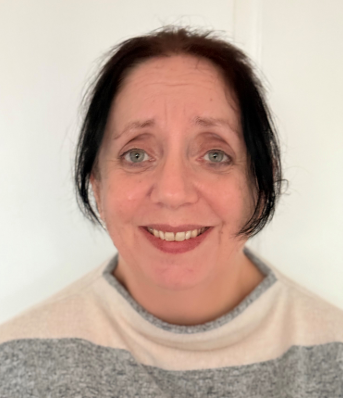PhD student Tonya Miles
Meet Tonya, supervised by Dr Nicolas Farina at University of Plymouth, Peninsula Medical School. As a PhD student at our I-CARE Doctoral Training Centre, Tonya's exploring how living in a coastal community affects people's experience of dementia diagnosis and care.

Tonya's project looks at:
How living in a coastal community affects access to dementia diagnosis and care, and what role do coastal poverty and the unique wellbeing benefits of seaside living play.
Professional expertise and accessible services is a real struggle for our coastal communities. I want to highlight the concerns around coastal poverty and help influence policies and procedures to improve access to early diagnosis and care.
Tell us about your project?
The aim of my project is to look at the advantages and disadvantages of living in a coastal community. To look at the ranges of disparity in accessibility of diagnosis and care, and to understand the impact of coastal poverty on timely diagnosis and care provision.
This research will identify, where possible, the barriers to a healthy lifestyle for people living in a coastal community. There may be a connection between seasonal work and access to diagnosis and healthcare, which may also have an impact on families.
For instance, does seasonal work affect the decision to attend appointments? We know that, most of the time, for a family member to take time to attend an appointment they will not receive a wage - and this can be a whole day given the geography of the Cornish coastal communities.
These potential disadvantages will be compared with the advantages of living by the coast - socialising, fresh air and how that can be a benefit to improving memory and quality of life. This research will explore how we can make these assets accessible to everyone regardless of geography and finance.
What excites you most about your PhD journey?
Being able to continue to support change to diagnostic routes and accessibility for more timely diagnosis and working alongside a diverse group people to achieve this, especially collaborating with the experts by experience.
As an Advanced Nurse Practitioner and Frailty Nurse Specialist, I have spent over 20 years working with people who have a diagnosed or are yet to be diagnosed with dementia. I have seen the services develop in this area and perceptions towards dementia change in that time.
More recently, I have supported my own family. Having a family member now living with dementia has given me added insight.
How does it feel to be part of the Doctoral Training Centre for Integrated Care?
I am excited to be part of a body of people who are passionate about the research taking place. Rather than trying to effect change on my own, I can be part of a team.
Research on integrating dementia care
This Centre’s research focuses on ways to provide better care and services for people with dementia, from their diagnosis through to the end of life. Find out more about their cutting-edge research and how they’re working to improve the lives of people affected by dementia.

